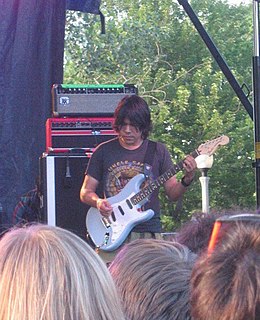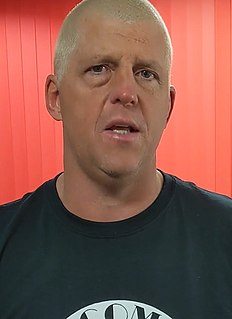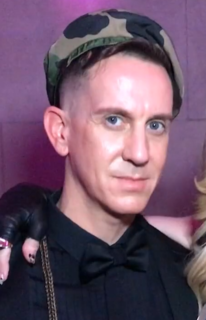A Quote by David Pajo
Most people found out about Slint in the mid or late 90s, but we were an '80s band. We started in 1986 and broke up at the end of 1990.
Related Quotes
A research group found that 56 percent of major companies surveyed in the late '80s agreed that 'employees who are loyal to the company and further its business goals deserve an assurance of continued employment.' A decade later, only 6 percent agreed. It was in the '90s that companies started weeding people out as a form of cost reduction.
We went 60 years or more with no immigration, folks. It can be done. The only reason that it started up again, Ted Kennedy started bellyaching about it in the mid-sixties, and then that led to Simpson-Mazzoli 20 years later, 1986, amnesty for about 3.9 million, and we were told that would be it, never again, and of course now we're where we are.
As a writer, I was deliberately creating an alternate world, and then populating it with experiences and people that I knew in this world, but I'd shake up the mix considerably. And about the same time that the memoir was becoming the dominant popular literary form in the mid to late 90s, I started reading writers who were deliberately playing with the notion of "truth" and "fiction" - that struck me as a much more interesting way to tell certain stories, particularly in the realm of comedy.
When I'm representing my music live I think of it very much in a rock band sense. When I first started doing festivals in the 90s there really weren't other DJs playing the stages I was playing. So I felt I was being afforded an opportunity to kind of make a statement about what DJ music can be live. In the 90s, if you were a DJ you were in the dance tent, and you were playing house music and techno music. There was no such thing as a DJ - a solo DJ - on a stage, after a rock band and before another rock band: that just didn't happen.




































